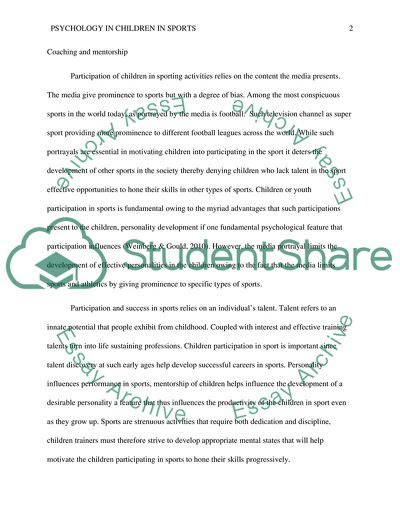Cite this document
(The Importance of Psychology in Children in Sports Coursework Example | Topics and Well Written Essays - 1500 words, n.d.)
The Importance of Psychology in Children in Sports Coursework Example | Topics and Well Written Essays - 1500 words. https://studentshare.org/psychology/1821821-the-importance-of-psychology-in-children-in-sports
The Importance of Psychology in Children in Sports Coursework Example | Topics and Well Written Essays - 1500 words. https://studentshare.org/psychology/1821821-the-importance-of-psychology-in-children-in-sports
(The Importance of Psychology in Children in Sports Coursework Example | Topics and Well Written Essays - 1500 Words)
The Importance of Psychology in Children in Sports Coursework Example | Topics and Well Written Essays - 1500 Words. https://studentshare.org/psychology/1821821-the-importance-of-psychology-in-children-in-sports.
The Importance of Psychology in Children in Sports Coursework Example | Topics and Well Written Essays - 1500 Words. https://studentshare.org/psychology/1821821-the-importance-of-psychology-in-children-in-sports.
“The Importance of Psychology in Children in Sports Coursework Example | Topics and Well Written Essays - 1500 Words”. https://studentshare.org/psychology/1821821-the-importance-of-psychology-in-children-in-sports.


